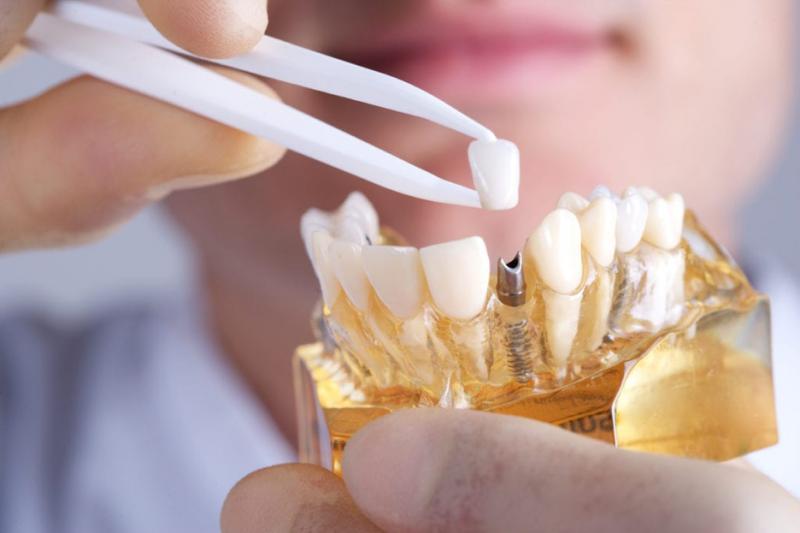7 Tips For Maintaining Your Dental Implants

Dental implants are a popular and effective way to replace missing teeth. They are strong and durable and can last a lifetime with proper care.
Dental implants are small titanium posts that are surgically placed into the jawbone to serve as artificial tooth roots. Once in place, they allow your dentist to attach replacement teeth (crowns, bridges, or dentures) directly onto them. Dental implants are a popular and effective way to replace missing teeth. They are strong and durable and can last a lifetime with proper care.
Here are seven tips for keeping your dental implants in top condition:
- Keep up with your oral hygiene routine. Whether you have natural teeth or dental implants, it's important to keep up with your oral hygiene routine. That means brushing at least twice a day and flossing at least once a day to remove plaque and bacteria. When it comes to implants, it's especially important to brush and floss around the base of the implant where food and bacteria can accumulate. If you don't keep up with your oral hygiene, you may start to experience gum inflammation, bad breath, and an increased risk of tooth decay. So make sure to brush and floss every day to keep your smile looking its best.
- Visit your dentist regularly. If you experience any problems with your dental implants, it is important to see your dentist right away. While most problems can be easily resolved, delays can sometimes lead to more serious issues. If you're in the Riverside area, contact Dr. Ali Shmara by scheduling an appointment at riversidecosmeticdentist.com.
- Quit smoking. Smoking is one of the most significant risk factors for implant complications, and can greatly increase your chances of developing gum disease. Gum disease is a serious condition that can damage the tissue and bone around your implants, eventually leading to implant failure. In addition, smoking can also cause bad breath and staining of your teeth. Quitting smoking is the best way to reduce your risk of these problems, and will help keep your implants healthy for years to come.
- Eat healthy foods. Did you know that what you eat can impact your dental implants? That's right - just like natural teeth, implants are susceptible to plaque build-up and decay. So, it's important to eat a balanced diet of healthy foods that will help protect your implants.
Some of the best foods for dental health are leafy green vegetables, which are packed with vitamins and minerals that promote gum health; crunchy fruits and vegetables, which help remove plaque; and dairy products, which contain calcium for strong teeth. Additionally, it's important to limit sugary and acidic foods, as well as sticky snacks like candy or granola bars, as these can increase your risk for tooth decay. By making smart food choices, you can help keep your dental implants healthy and looking their best.
- Avoid hard and crunchy foods. One of the most common ways people damage their implants is by eating hard or crunchy foods. Biting into hard candy or ice can break the implant while cutting up hard fruits and vegetables can cause wear and tear. As a result, it's important to be mindful of what you're eating and chewing. If you're not sure whether a food is safe for your implants, ask your dentist or oral surgeon. They'll be able to give you specific guidance on what to eat and what to avoid. By following their advice, you can help keep your implants healthy and looking great for years to come.
- Use a mouthguard. Unlike natural teeth, implants can't repair themselves if they're damaged. That's why wearing a mouthguard is such an important part of caring for your implants.
Your best bet is to get a custom-fit mouthguard from your dentist. They'll be able to take into account the specific placement of your implants and make sure that the mouthguard offers the best possible protection. In contrast, over-the-counter mouthguards may not fit as well and may not provide the same level of protection.
So if you're an athlete with dental implants, be sure to talk to your dentist about getting a custom-fit mouthguard. It's the best way to keep your implants safe and sound.
- Just like your natural teeth, your implants need to be brushed and flossed every day. Be sure to use a soft-bristled toothbrush and nonabrasive toothpaste to avoid damaging the implant. In addition, you should visit your dentist regularly for professional cleanings and checkups. If you notice any changes in your mouth, such as redness, swelling, or discharge, be sure to contact your dentist right away. By taking good care of your implants, you can help them last a lifetime. With proper care, your implants can give you a beautiful, healthy smile for many years to come.
If you have any questions about caring for your dental implants, be sure to ask your dentist. They can help you create a personalized care plan to keep your implants looking their best.
More to Read:
Previous Posts:





